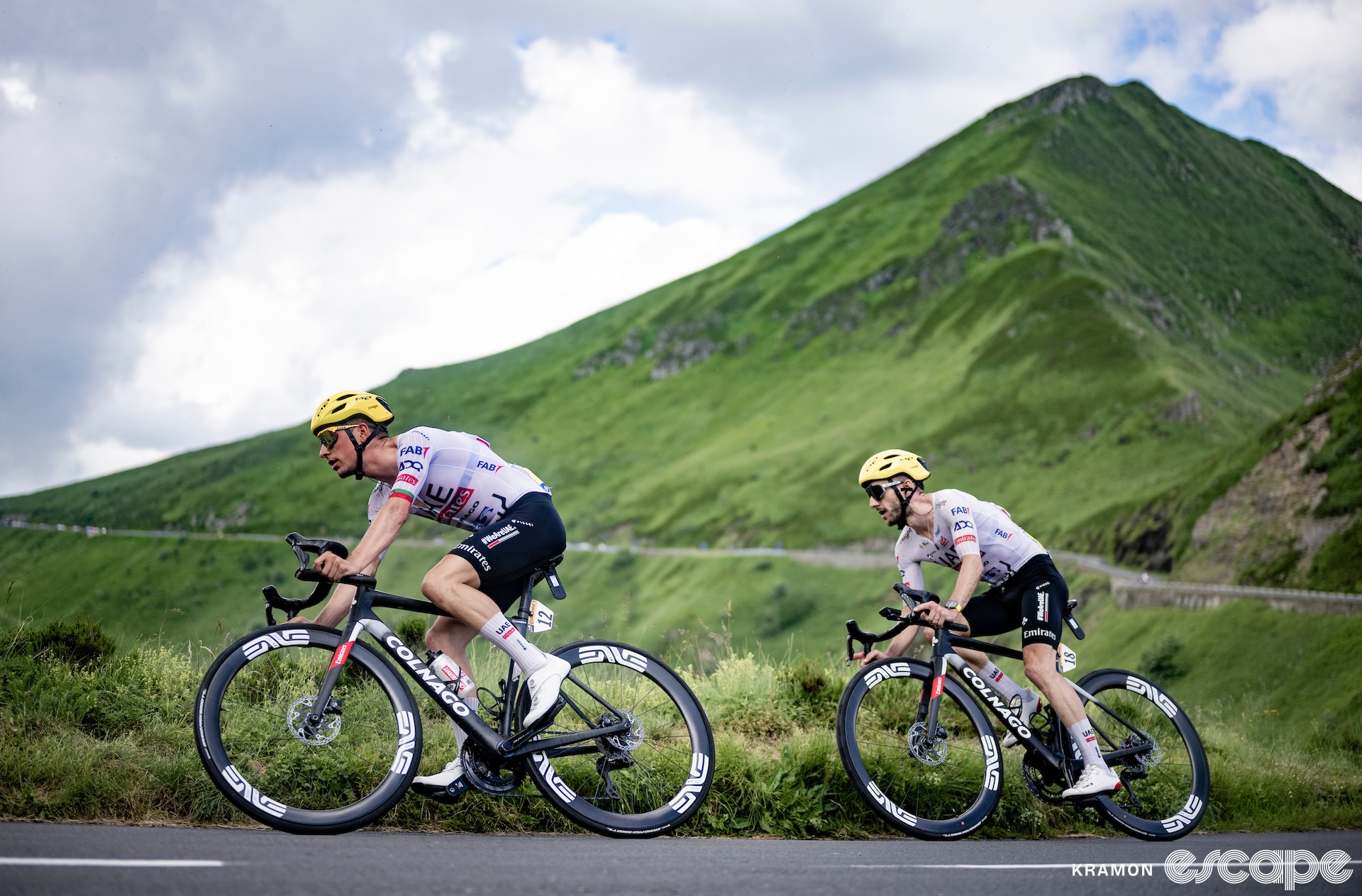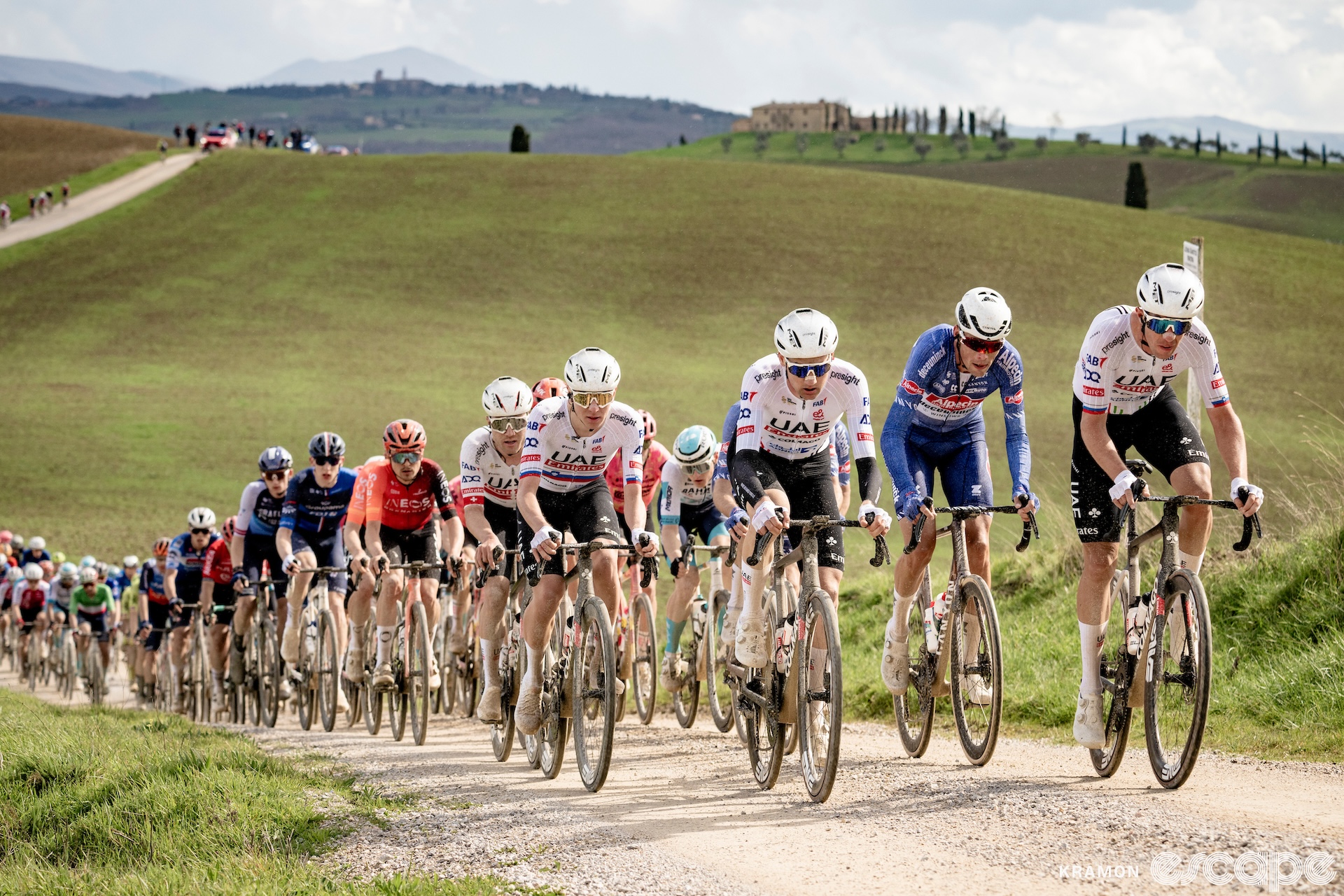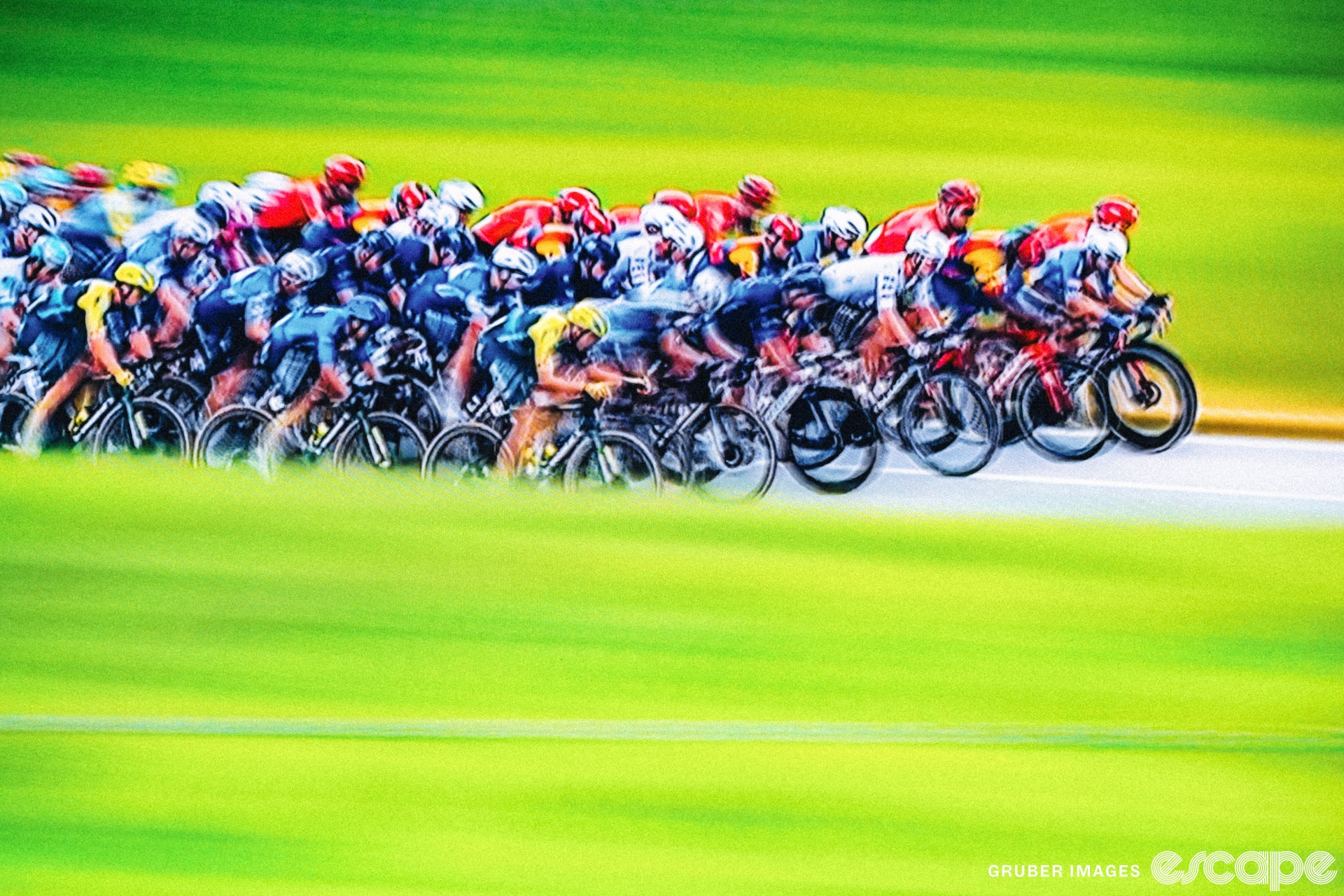Talk of a budget cap in pro cycling has circulated for some time, but plans may finally become reality as soon as 2026, as multiple sources tell Escape Collective that the Union Cycliste Internationale has been pushing for a budget cap along with other senior stakeholders. This summer, the sport’s world governing body began working with the Switzerland-based accountancy firm PwC, which has previously consulted on the introduction of financial regulations in a range of other sports.
PwC presented options for a Financial Fairness Initiative (FFI) to a group of stakeholders at the Zurich-held Road World Championships in late September. That proposal, a copy of which was obtained by Escape, highlighted seven financial sustainability models used in other sports, noting which are and are not applicable to cycling’s unique structure. A small working group has proposed creating a tailored system unique to cycling that brings together the key elements of other models currently used in a number of sports across the globe.
The stated objective of the presentation was to “define the founding principles for the new financial sustainability regulations to be implemented in the 2026 season.”
All 18 WorldTour teams were only told in detail of the plans before Il Lombardia, and no model has yet been agreed upon. One team source said: “There are still lots of discussions to be had before we get close to any decision being made.”

The tentative plan for cycling’s model is a hybrid of a fluctuating budget cap that limits the amount of money a team can spend on operations per season, and a “luxury cap” which financially penalises teams for exceeding a given threshold of rider salaries. One option on the table is that money collected from this “tax” could then possibly be distributed among teams with lower revenues in an attempt to even the playing field.
None of those proposals are finalised, and one stakeholder pushing for the FFI to be implemented told Escape that discussions were still at a very early stage. Other models, such as revenue-related caps and financial loss limitations like Financial Fair Play rules in football, were dismissed as inapplicable for professional cycling. Any financial sustainability plan would have to either account for differences in tax laws across countries of registered teams or at least be collectively bargained between teams and the UCI.
An attempt to level the road
After Jumbo-Visma won all three Grand Tours in 2023, UAE Team Emirates have taken their place as the sport’s all-conquering team, claiming 81 victories and counting this season. The next best team, Lidl-Trek, count 42, while at the bottom, Cofidis have only won on five occasions. That range of competitive performance correlates very closely with team budget, according to the PwC presentation.
There is a general acceptance within the sport that the richest teams – UAE, Visma, Lidl, Red Bull-Bora-Hansgrohe and Ineos Grenadiers – all have a significant competitive advantage owing to their larger budgets, and thus the sport is more predictable and by extension less appealing to spectators. But the PwC presentation lays out just how stark is the disparity between the sport’s top and bottom teams.

In 2024-season figures from PwC’s presentation to the UCI’s budget cap working group, the richest six WorldTeams (ie. the top third) account for almost half of the combined budgets of all 18 WorldTeams, and the wealthiest three teams – thought but unconfirmed to be UAE, Visma and Ineos – have budgets that are between 2.3 to 4.5 times that of the three poorest teams. Currently, the gap between the lowest-budgeted WorldTeam and the highest is almost €42mm.
The amount of money teams spend on rider salaries is also disproportionate: according to the presentation, two teams spend in excess of €26mm each year on rider wages, while eight spend less than €9mm. In total, the richest six teams collectively account for 55% of all rider salaries, and all spend at least double and sometimes triple that of the eight lowest-spending teams.
The discrepancy is replicated with staff salaries: five teams have an annual spend of less than €2.7mm on their staff, while the three teams with the deepest pockets spend between €5.2 and €7.7mm per year. In fact, the richest team spends more on staff than the poorest eight teams spend on riders.
Meanwhile, the two wealthiest teams each have an annual outlay of €4.7mm on equipment, compared to 10 teams who spend €1.5mm or less; four spend less than a million Euros per year. The eight richest teams account for 72.8% of total equipment costs for all WorldTeams.
All these figures point to the same conclusion: there are haves and have-nots in the WorldTour. The question the UCI seeks to answer is what can, or should, be done about it?
A wait-and-see approach
Sources supportive of the budget cap insist that whatever mechanism is agreed upon, it should not mean that average budgets are curtailed. In the past two decades, budgets have increased from an average of €4mm in 2004 to €28mm in 2024. Any cap would instead be intended to close the gap between each team’s budget without harming overall growth in the sport.
Backers of the plan hope that a cap would increase the competitive balance between teams, as well as promote financial stability. It is also hoped that, as such, the sport would become more attractive to viewers which would in turn increase the value of sponsorship for teams.
Escape reached out to half of the WorldTour teams, but all refused to comment publicly. One senior team source said: “A budget cap is a good idea but not in the economic system that we have in cycling. Why don’t we invest our energy into a complete reform of the model of the sport, and then get to details like budget cap as part of a bigger picture?”
The CPA, the professional riders’ union, is against the introduction of a budget cap as is currently being proposed. Escape approached CPA president Adam Hansen on several occasions for comment but as of publication he has not responded.
Other stakeholders Escape contacted maintained that discussions have only just begun and thus it’s too early to “draw conclusions” if they are on board with the plans or not.
Did we do a good job with this story?

